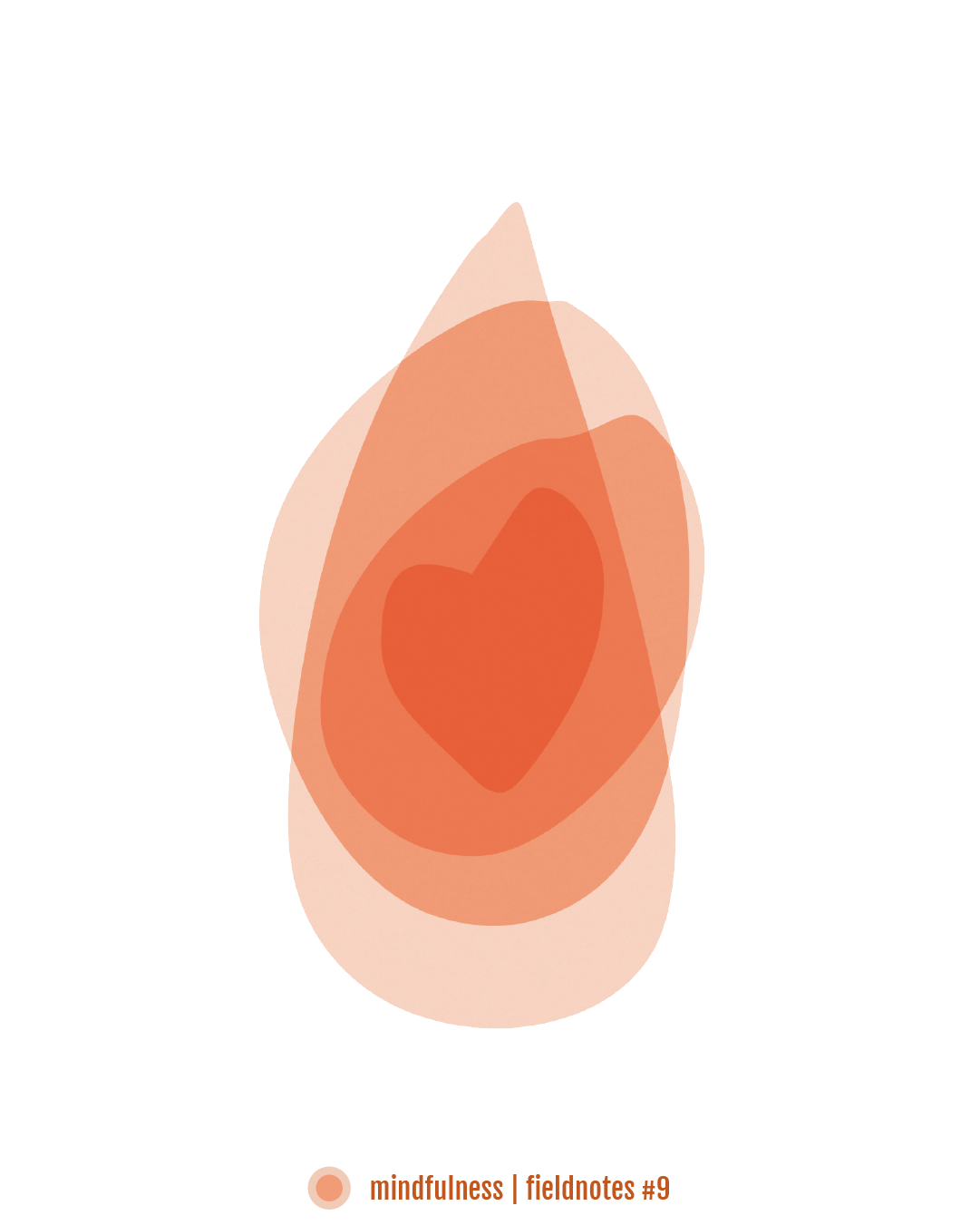Fieldnotes - 9
Self-compassion meditation is a quite helpful practice when things might get tough and rough on you. When life challenges us, we may immediately find ourselves in a sense of panic and this, in turn, may make us feel alone and isolated. We tend to become focused on our own situation as if we are the only one suffering. Self-compassion meditation give us a sense of interconnectedness. And we create a pace in which we recognize that all humans are flawed works-in-progress, that everyone fails and makes mistakes, and experiences hardship in life. Self-compassion practically embraces the fact that life contains suffering, for everyone, without exception. We remind ourselves that this is normal and natural. It’s easy to say this but in hard experiences, we tend to forget this very fact.
This practice reminds ourselves to put into action three main components of self-compassion—mindfulness, common humanity, and kindness— when things get tough in our lives. It also harnesses the power of soothing touch to help us feel safe and cared for. Try to find your own wording when doing this practice. Make it your own and try out a few different variations to see what works for you. We find this exercise very helpful to skillfully handle life challenges, and we hope you find it helpful too. Think of it as a mini-meditation and practice it whenever you feel the need.
……………………………
Self-Compassion Break
Think of a situation in your life that is difficult, that is causing you stress. Call the situation to mind, and see if you can actually feel the stress and emotional discomfort in your body.
Now, say to yourself:
1. This is a moment of suffering
That’s mindfulness.
Other options include:
· This hurts.
· Ouch.
· This is stress.
2. Suffering is a part of life
That’s common humanity. Other options include:
· Other people feel this way.
· I’m not alone.
· We all struggle in our lives.
· Now, put your hands over your heart, feel the warmth of your hands and the gentle touch of your hands on your chest. Or adopt the soothing touch you discovered felt right for you.
Say to yourself:
3. May I be kind to myself
You can also ask yourself, “What do I need to hear right now to express kindness to myself?” Is there a phrase that speaks to you in your particular situation, such as:
· May I give myself the compassion that I need
· May I learn to accept myself as I am
· May I forgive myself
· May I be strong.
· May I be patient
This practice can be used any time of day or night, and will help you remember to evoke the three aspects of self-compassion when you need it most.
This section is an excerpt from Dr. Kristin Neff’s website: www.self-compassion.org and one of her guided meditations titled “Self-Compassion Break”. Kristin Neff, Ph.D. is widely recognized as one of the world’s leading experts on self-compassion, being the first one to operationally define and measure the construct over a decade ago. In addition to her pioneering research into self-compassion, she has developed an eight-week program to teach self-compassion skills in daily life, co-created with her colleague Dr. Chris Germer, called Mindful Self-Compassion (MSC). Her book, Self-Compassion, was published by William Morrow in April, 2011. She’s also the author of Amazon Bestseller and #1 New Release in Social Work: The Mindful Self-Compassion Workbook by Kristin Neff and Chris Germer: The seeds of self-compassion already lie within you—this workbook will help you uncover this inner resource and transform your life.
